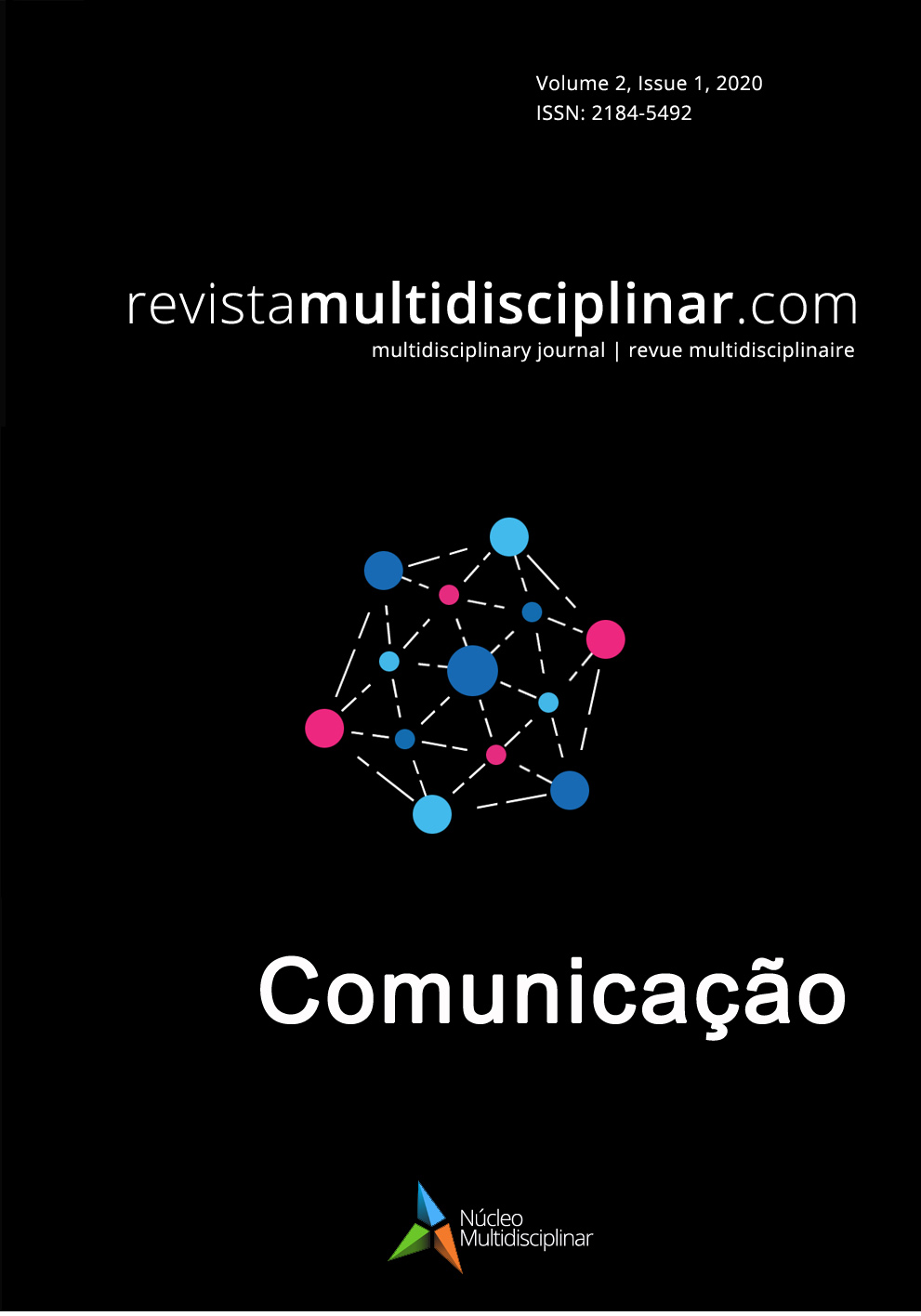Desinteresse público nos media sobre temas ambientais
DOI:
https://doi.org/10.23882/MJ2029Palavras-chave:
crise ambiental, cobertura dos media, desinteresse, mudança climática, normas jornalísticasResumo
A crise ambiental e as mudanças climáticas pertencem a um grupo de tópicos que parecem não estar a receber tanta atenção dos media como por exemplo a política, economia, finanças ou as questões sociais e étnicas. Embora o ambiente tenha algum escopo em notícias e documentários, nem sempre é apresentado de forma abrangente. Embora ambientalistas e eco filósofos estejam constantemente - e cada vez mais urgentemente - apontando para aquilo que descrevem como uma situação alarmante, parece que a maioria do público adotou uma postura bastante indiferente (desinteressada) em relação a notícias sobre uma iminente crise ambiental, mudanças climáticas, aquecimento global, uso de plástico etc. O discurso público e o discurso dos media estão cada vez mais entrelaçados, permitindo que as pessoas comuns adquiram a maioria das informações (não apenas) sobre questões ambientais através dos meios de comunicação de massa como a imprensa, internet, rádio e televisão (noticiários e documentários). Este artigo discutirá as possíveis relações entre a apresentação de questões ambientais nos media e as atitudes do seu público. Acreditamos que os media devem assumir a sua parte na conscientização pública sobre questões ambientais. Este nosso artigo será baseado em pesquisas interdisciplinares, predominantemente teóricas, envolvendo a combinação de estudos e filosofia dos media. Discutiremos as principais características desta questão do ponto de vista das teorias centradas nos media, pois acreditamos que os efeitos dos media na realidade empírica e social (incluindo questões ambientais) estão para além de qualquer dúvida.
Referências
Angus, I. (2016). Facing the Anthropocene. Fossil Capitalism and the Crisis of the Earth System. New York: Monthly Review Press. ISBN 978-1-5836760-9-7.
Arnold, E. (2018). Doom and Gloom: The Role of the Media in Public Disengagement on Climate Change. [online]. [cit. 2019-07-09]. Harvard Kennedy School: Shorenstein Center on Media, Politics and Public Policy, 2018. Retrieved from: https://shorensteincenter.org/wp-content/uploads/2018/05/Media-and-Climate-Change-Elizabeth-Arnold.pdf.
Bacc. (2008). Assessment of Climate Change for the Baltic Sea Basin. Berlin – Heidelberg: Springer-Verlag, ISBN 978-3-540-72786-6.
Bandura, A., Barbanarelli, C., Caprara, G & Pastorelli, C. (1996). Mechanisms of Moral Disengagement in the Exercise of Moral Agency. Journal of Personality and Social Psychology, 71(2), pp. 364-374.
Bandura, A. (1994). Self-Efficacy. In: Ramachaudran, V. S. (Ed.): Encyclopedia of Human Behavior, 4, 71-81. Retrieved from: https://www.uky.edu/~eushe2/Bandura/Bandura1994EHB.pdf.
Boykoff, M. T. (2009). We Speak for the Trees: Media Reporting on the Environment. Annual Review of Environment and Resources, 34, 431-457. Retrieved from https://sciencepolicy.colorado.edu/admin/publication_files/resource-2788-2009.49.pdf.
Duroy, M. Q. (2005). The Determinants of Environmental Awareness and Behavior (Rensselaer Working Papers in Economics). Troy: Rensselaer Polytechnic Institute. Retrieved from: https://bit.ly/3hMyfJp
Eliáš, P. (2013). Ekologická gramotnosť a environmentálne povedomie [Ecological Literacy and Environmental Awareness]. In: Fedor, P. - Pavličková, K.: Stav a perspektívy environmentálneho vzdelávania [Situation and Prospects of Environmental Education]. Bratislava: Comenius University, Faculty of Natural Sciences. ISBN 978-80-223-3502-7, pp. 186-197.
Ethical Journalism Network. (2019). The 5 Principles of Ethical Journalism. Retrieved from: https://ethicaljournalismnetwork.org/who-we-are/5-principles-of-journalism.
Heald, S. (2017). Climate Silence, Moral Disengagement, and Self-Efficacy: How Albert Bandura’s Theories Inform Our Climate-Change Predicament. In Environment: Science and Policy for Sustainable Development, 59 (6), 4-16.
Henčová, K., Javorská, A., Sťahel, R., & Špirko, D. (2017). Kapitoly z dejín environmentálneho myslenia [Chapters from History of Environmental Thought]. Nitra: UKF. ISBN 978-80-558-1243-4.
Hughton, D. (2002). Introduction to Climate Change: Lecture Notes for Meteorologists. Geneva: WMO. ISBN 92-63-10926-5.
Iuzuka, M. (2000). Role of Environmental Awareness in Achieving Sustainable Development. Government of Japan. Retrieved from: https://bit.ly/3wfZPUc
Leiserowitz, A., Maibach, E., Roser-Renouf, C., Rosenthal, S., Cutler, M., & Kotcher, J. (2018). Climate Change in the American Mind: (Yale Program on Climate Change Communication). New Haven: Yale University and George Mason University.
Malhi, Y. (2017). The Concept of the Anthropocene. In: Annual Review of Environment and Resources, 42, 25.1-25.28.
Martyniak, K. (2014). Mass Media Coverage of Climate Change – Towards Public Engagement. Retrieved from: https://climate-exchange.org/2014/06/17/mass-media-coverage-of-climate-change-towards-public-engagement/.
Rahman, M. I. (2013). Climate Change: A Theoretical Review. In Interdisciplinary Description of Complex Systems, 11 (1), 1-13.
Roser-Renouf, C., Maibach, E., Leiserowitz, A., Feinberg, G., & Rosenthal, S. (2016). Faith, Morality and the Environment: Portraits of Global Warming's Six Americas. (Yale Program on Climate Change Communication). New Haven: Yale University and George Mason University.
Skačan, J. (2019). Environmental Issues and Climate Change in Media Discourse. In Z. Bučková, L. Rusňáková, M. Solík (Eds.) Megatrends and Media: Digital Universe (pp.242-256). ISBN 978-80-572-0015-4
Sklair, L. (2018). The Anthropocene Media Project. Mass Media on Human Impacts on the Earth System. Visions for Sustainability, 10. Retrieved from: http://www.ojs.unito.it/index.php/visions/article/view/2740.
Sťahel, R. (2019). Pojem krízy v environmentálnom myslení [The Term of Crisis in Environmental Thought]. Bratislava: Iris. ISBN 978-80-8200-038-5.
Woods, R., Coen, S., & Fernández, A. (2018). Moral (dis)engagement with anthropogenic climate change in online comments on newspaper articles. Journal of Community & Applied Social Psychology, 28, 244-257. doi: 10.1002/casp.2355
Zerubavel, E. (2006). The Elephant in the Room. Oxford: Oxford University Press. ISBN-13: 978-0-19-518717-5.
Downloads
Publicado
Como Citar
Edição
Secção
Licença
Direitos de Autor (c) 2020 Juraj Skačan

Este trabalho encontra-se publicado com a Creative Commons Atribuição-NãoComercial 4.0.









